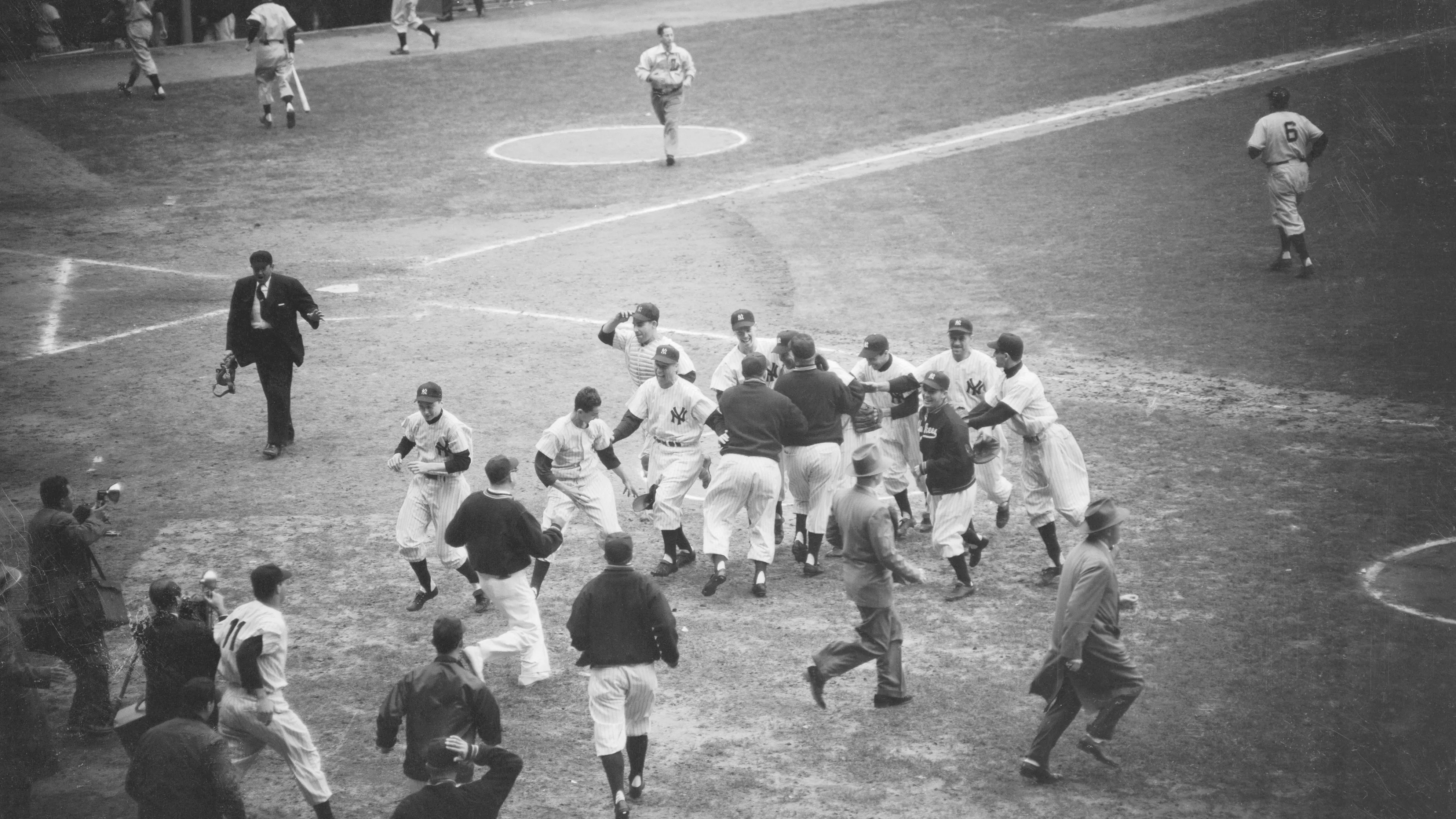Whenever a new manager is chosen to lead a team, there are questions, but new Cubs skipper David Ross is far from an unknown. He was, after all, a key piece in the 2016 run that led the Cubs to their first championship in 108 years. Now, he will have to follow the success of Joe Maddon, the man who led that 2016 team.
Grandpa Rossy as he is affectionately known, paid his dues over a long playing career and since retiring after the 2016 World Series, has had the opportunity to work as a special assistant and commentator. In that sense, Ross represents a shift in how managers are chosen. Once the analytics world became a fixture in how major league organizations evaluate, develop and project talent, the leaders tasked with implementing these new approaches in-game evolved, as well.
This change in Chicago represents how the past hands off to the future in major league baseball. From Maddon to Ross.
Maddon hit every station in the Angels system to reach his first managerial job in Tampa Bay: hitting coach, minor league player, scout, player development, bench coach, you name it. He became a manager after seeing the game from every perspective. Ross will emerge from what has become the path of today: groomed in the Cubs system off-the-field, educated in algorithms and team methodology, untainted by the gut of bias, comfortable with blending the will of the front office with the stubbornness of big league egos to get results.
These days you must be a communicator, and not just to your players, but also as a bilateral through line that connects the decisions of the administration with those enacting said decisions between the lines. Players must believe in you first and foremost, and now they must also believe in your information and its value to their performance. Ross will be armed with a whole host of personnel to make that easier.
In his interview, Ross was tested by his ability to handle press conferences in addition to being assessed on his ability to run a team. That distraction is a real thing, and reconciling it means possessing the skills to buffer the team from infiltration and preserve trade secrets, while simultaneously engaging the press to maintain fan interest and access. And, on top of all that, he’ll have to produce winning results.
You no longer need ‘experience’ in the Maddon sense of the word to be a big league manager. To a large degree, experience now can be trained, calculated, bought, engineered and imitated. Players know Ross well, and his biggest challenge may actually be transitioning from respected elder and fun teammate to a boss, someone who you must defer to when your name is not in the lineup.
MLB
How easy is it to go from teammate to boss?
Looking around the major leagues, the formula has worked fairly well thus far. The league is now full of managers with little managerial experience before their current jobs that laterally moved into their roles after being exposed to the recipe for success. Their age is closer to that of their players, they’re nimble, open, flexible and possess the energy for the marathon that is a MLB season. All without the baggage of recalling managerial success from a time that has long past.
Ross, it should be mentioned, also brings the perseverance of a warrior back-up catcher, a station that provides little in the way of job security. He endured knowing he was perpetually one day, one pitch, one failure away from a minor league assignment. By the time Ross retired in 2016, it had been 10 years since he saw a season with over 200 at bats. He was efficient, with strong leadership skills, pitch-calling abilities and game management senses. Any player with substantial time on the bench and in the bullpen, who took the time to observe and absorb the calculations of running a game, can gain great insight into being a manager.
I spent a good chunk of my big league career as a starter and it wasn’t until I rode the bench for a big part of the 2002 season that I started really thinking ‘with’ the manager. What situation would he put me in? When would he double-switch or get the setup man up? What pitches was he calling? It was a front row seat to how to run a game.
The relentless spirit it took for Ross to continue to carve opportunity out in the big leagues is a trait that can translate well. He left no stone unturned and became well-acquainted with the struggle of the day-to-day that makes up major league baseball. He knows the marathon well.
He will inherit a challenging environment of talented players who are more comfortable (since 2016) in who they are as players. El Mago, KB, Contreras and Rizzo have hit the highs and lows of their games. Still hungry, but more settled — yet as a unit, heading in the wrong direction in relation to the goals set up by Cubs leadership.
With change comes a culture shift, and this shift will now come from an entirely different in-the-field leadership profile than the Cubs have had in quite some time. In getting used to gelling around someone who is familiar as a teammate, but not necessarily as the guy making the lineups, there will be a steep learning curve, and Ross will have to set the tone. There is plenty of unknown.
For Theo Epstein and company, this is a departure from the leadership he has worked with in the past. In sparking the revolution he brought into baseball that ended two long streaks of championship futility in Boston and Chicago, Epstein has often leaned on experienced managers.
Epstein has thrived in being the youthful voice, acting as the GPS of a ship with a steady captain — one with ample experience, patience and sound instincts. When I showed my 10-year old daughter a picture from when Maddon was let go with Theo Epstein in the photo, she first assumed Maddon was Epstein and Epstein was Maddon because of their age difference, saying, “I thought the older person would be the boss.”
Now, Epstein will continue on as the Cubs’ GPS, but will have to add some automatic functions and trust those around him, as the team’s new captain (that Epstein hired) puts the keys in for the first time. This is a new ocean for him, providing him the chance to set all kinds of cultural markers and train within his methodology. The drawback for Epstein is he will be more exposed since, should the Ross era turn out poorly, the accountability may start shifting to the system itself instead of the guy on the dugout steps.
There is less cover now. Ross will not fall short from leaning on stodgy norms built from decades in the dugout, but he could prove to be the wrong fit at the wrong time for the system. Managers are now disposable assets, surrounded by potential replacements in the dugout or fluttering around the front office as special assistants. They can be plugged in and unplugged as needed. If the system is sound, many can have success in it. But the question is, who can win it all?
As we sit here today, the Washington Nationals are on the cusp of shocking the world. They currently hold a 2-0 lead over the near-flawless Houston Astros in the World Series and have already knocked off two Cy Young caliber pitchers with relative ease. It all goes to show that having a dynasty is a fleeting concept when, at any time, a team can emerge and disrupt destiny. It turns out it is not easy to run the table multiple years in a row. Someone gets in the way as the rule, not the exception. The Cubs found this out after the 2016 season. And now, new culture has arrived.
Soon we will find out what the new Cubs culture will be like. Ross will set some of that tone as he gains a feel for what works. The “player’s manager” label will be connected to Ross in a different way than it was with Maddon. They both shared the trait of likeability and maybe they will both be known to give the players free reign to be themselves.
A manager with that label, when he wins, is often framed as having just the right touch of anti-establishment. Quirky and self-confident. They go against the grain, and have both the respect of their players and command of the locker room. But when a manager of the ‘likeable’ description loses, he’s called too cozy, out of touch and too worried about what the players think about him. It’s a fine line.
These days, the managers who are young and recently retired like Ross are automatically player’s managers in part because they probably could still play. They are extensions of the dugout and locker room, voices who can bring high level information and deliver it to players in a relatable way.
Current and recent managers such as Aaron Boone, Alex Cora, Mike Matheny, Robin Ventura, Craig Counsell, Walt Weiss, Gabe Kapler and many others have arrived in such a way. Many have had immense success. Ross could join in that success in Chicago.
The culture has shifted in Chicago towards youth, modernity, infrastructure, connectivity and nostalgia. The Cubs can still win with the talent in that locker room.
They will just have to learn to do it in a way that is different than what ended 108 years of an empty trophy case.
Click here to download the new MyTeams App by NBC Sports! Receive comprehensive coverage of your teams and stream Cubs games easily on your device.

